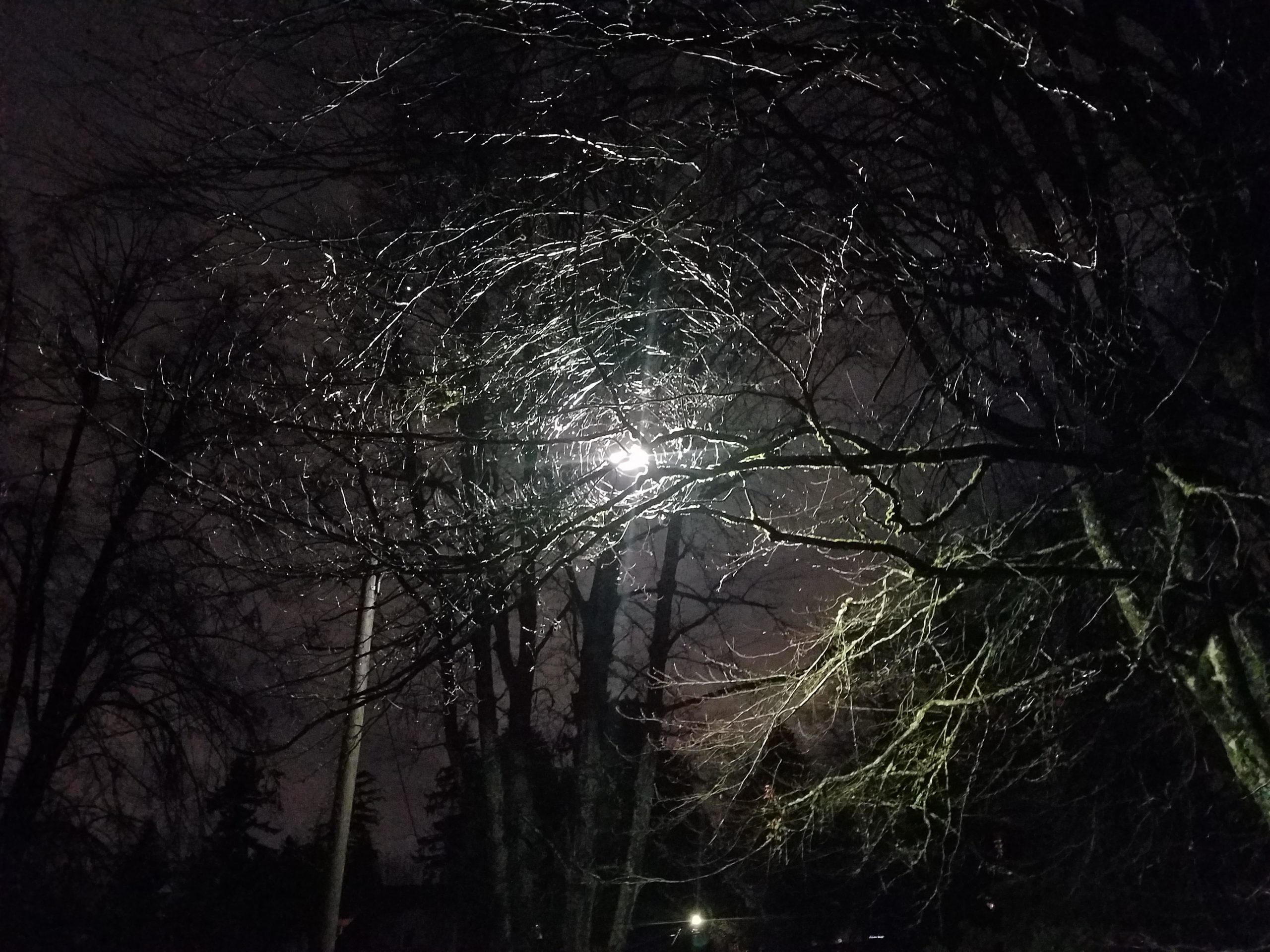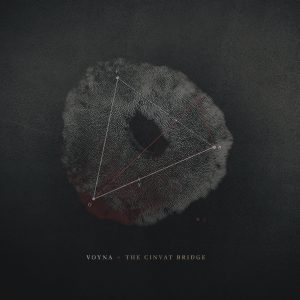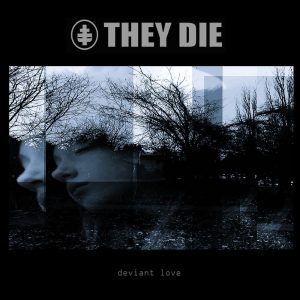Written by: Dave Cantrell
Today we launch a new column that serves as successor to a popular one from years ago. As many longtime readers may recall, back in the early-to-mid two thousand teens Shadowplay would, with a shaky but steady regularity, feature a small handful of albums recently released into the post-punk/darkwave world. While there was no editorial reason to close that column down, as it’s author I can tell you that, aside from the run of the mill ‘life got busy’ excuse along with the fact that too many albums outside that shadowy parameter were being left languishing in the ever-growing promo stacks, I was, to be honest, never comfortable with that name. The Joy Divison reference made it feel too obvious – hence its use by a number of other publications for similar uses – and therefore a bit…lazy. But once it was in place and the pieces took off to varying degrees, who was I to object? Well, apparently, in a typical writer-like passive-aggressive way, I ended up doing just that by letting the column quietly fade away into the archives. However, true to the spirit that animates just about every note that comes out of that genre family, the Shadowplay idea haunted me from its unmarked grave and wouldn’t give up until it was returned to its rightful place in the pages of SEM. In the end I was forced to agree but with one condition: change that name. And so here we are, newly-christened, refreshed if a bit restless from the lengthy stay in purgatory. The goal – admittedly a bit ambitious – is to publish one of these every month. May the forces of darkness (the good kind, mind) be with us…
KILL SHELTER & ANTIPOLE – A Haunted Place (Manic Depression)
To the vast and ever-growing darkwave faction around the world mention the names Pete Burns AKA Kill Shelter and Karl Morten Dahl DBA Antipole and likely one of two manners of head-shaking will result before any verbal response is offered: a vigorous up-and-down nod akin to the sentiment ‘Yes! Yes! Yes! They are amazing!!’; or a slower, more contemplative back-and-forth motion that leads to them saying in something of a wondrous whisper ‘I don’t know how they do it.’ Tell them next, if they didn’t already know (we’re not sure how that could be but anything’s possible, we suppose), that the two have collaborated on a recently released record called A Haunted Place and watch as the news stills their head and renders them speechless.
Though with no argument a monumental pairing, the fact that A Haunted Place is a collaborative work could surprise no one that’s leant either of these gentlemen’s work their ear over the last few years, seeing as Antipole’s most recent full-length, 2020’s Perspectives II was, like Perspectives I two years prior, a selection of a dozen previous album tracks each remixed by a different musician drawn from the cream of the darkwave scene, while Kill Shelter’s standard-setting debut in late 2018 (Damage) featured a similarly exclusive crop of singers handling vocals on ten of its eleven songs. Dahl was one of them and if it was in the course of that interaction that seeds of this project were planted then Damage‘s standing as an album of consequence is thereby bolstered to a level of significance beyond. In any case, the plot twist this time is that every cut on A Haunted Place is sung by…Pete Burns. If you’re having trouble keeping score at home, it doesn’t matter. The album quickly whisks you away to such astonishing audio heights you’re too busy being dizzy and looking around for your breath to care, the ‘who’ the ‘what’ the ‘why’ falling away behind you back down there on Earth.
Between Damage and the countless treatments Burns has offered to other artists the last half decade or so, we knew going in how remarkable the sound on this recording would be and indeed it’s precisely what jumps out at you immediately like a three-dimensional sonic slap on opener and second single “Raise the Skies,” Dahl’s treated double-tracked guitar arriving with the force of the third or fourth coming of the apocalypse, the track pitching so constantly forward into the breach there’s really no choice but to lean forward with it and let go. Forceful as it is, however, what’s notable about “Raise” is the tension in its restraint, its authors understanding the track is powerful enough – and in fact more powerful – without the need to overpower (also notable? The vocals, baritone, assertive, darkly soulful in their way, making assuredly clear, should anyone have had any doubt, that the choice to invite other voices to the Damage project was made as an aesthetic – and generous – decision and by no means a necessary one). Fraught yet immensely satisfying, “Raise the Skies” pummels and cajoles like a joyous assault, a phrase that, come to think of it, succinctly applies to the album entire.
Coy and hesitant to start, the next up “Burn Bright” bursts to startling life thirty seconds in and never lets up, sheets of corrugated, chrome-burnished guitar tone owning the breaks, their effect – somehow – both scintillating and coarse, the vocal maintaining a kind of deadpan desperation, steeped in a matter-of-fact romantic nihilism (lyrical snippets: “take back your promises and give away my sins”; dressed in powder, dressed in pills she waits“) and taking its share of the inevitable blame, the song is, well, something of a burner. From there “A Kiss in the Rain,” moodier, more atmospheric, looming throughout on that fatalistic fulcrum between dread and beauty; the minor chorded existential bliss of “All For Nothing”; “The Edge of Reason,” lithesome, its apocalyptic melancholy as delicate as it is devastating; “Of Roses and Thorns,” adroitly tight-roping the line where meets the desires of the yearning human heart with the cold face of its ultimate destiny, all the while the effects of the arrangement and production flowing around the narrative in a stunning mix of chaos and precision.
Clocking in at a ‘mere’ eight tracks (a couple have been left unmentioned to tease your own discovery), it’s the brimming, sometimes explosive conciseness that will knock you over and surely that’s the point. Burns and Dahl have both in their respective works more or less perfected that zen tendency in both sound and vision so it’s no shock that anyone familiar with them would go into A Haunted Place with anything but elevated levels of anticipation. What’s breathtaking is just how commandingly the ultimate result subsumes even those already heightened expectations. You want concise? This record is, simply, crazy good. [A Haunted Place available here]
VOYNA – The Cinvat Bridge (Icy Cold Records)
When writing in this magazine about Berlin’s Golden Apes upon the 2016 release of their typically impeccable record M Λ L V S, three points were underlined at the outset: the band’s longevity, having formed in 1998 (a fact expressed with usual rue by yours truly as I had just ‘discovered’ them and it took them cold-mailing me the CD for that to even happen; the shame, the shame), the quantity and consistently rich and rather immense quality of the songs, and Peer Lebrecht’s voice, so resonantly baritone as to be damn near Wagnerian in its gale-like force. Both a relief and wholly unsurprising, that trio of elements is as grippingly present on The Cinvat Bridge, the singer’s debut under the guise of VOYNA, as it is anywhere through Golden Apes’ long trajectory. So, one might reasonably ask, why then this solo venture? The answer, as it cannot help but be, is both complicated and straightforward.
Between the triumph of M Λ L V S and this equally compelling latest effort came Kasbek in June 2019. Considered by the band (Peer, Peer’s brother Christian, Aris Zarakis and Gunter Büchau) as they gathered the previous summer at their own studio to be a moment of some consequence – it being twenty years since the band’s founding and all – the vibe of the recording process as it played out evolved into something less than celebratory. Rather, an invisible but fully felt rift of seasoned uncertainty crept into the sessions, a cloud of alienation settling over the room in place of the happier air of accomplishment they’d anticipated. Not shocking, perhaps – band dynamics over twenty years are bound to shift in subtly tectonic ways – but nonetheless the ultimate effect was Peer feeling left adrift in some kind of eerie solo mode, the vast majority of that album’s dozen songs, as a result, ending up being written and mixed by the singer sans collaborative input. While not ready by any stretch to call time on Golden Apes, the experience did lean Peer toward a more individual mindset, which was healthy in any number of ways especially as more and more song ideas were, it would seem, pouring out of him as if in torrents of dark light. As a result, less than two years later, with minimal hands on deck (primarily GA’s Berlin-based producer Thommy Hein on guitar), arrives this gift called The Cinvat Bridge, cathartic, revelatory, and, a bit amazingly but maybe not, even more sprawling than its two predecessors.
We start with “Provenance” (but of course we do; the guy is, after all, this sound’s original owner), a bass approaching with cautious stealth before the higher harmony of still another bass sneaks in behind it. When the guitar chimes its dark chime the drummer takes their cue. In suspense, our ears if they had breath holding it, the track blows open a titch past the minute mark and it is, in a word, glorious, the production stunning, the sound almost casually epic, an impression only confirmed when the singer steps to the mic eight measures later with the line “And they took me to the brickhouse” in a tone that could be called ominously down-to-earth. None of which would matter were it not for the melodic progression those vocals trace, agile, solid, and swooning with portent, not least at the lyric break when, reaching slightly higher into that profundo register, Peer intones the first version of the track’s central refrain “And for you…they will come,” (the second replacimg that ‘they’ with ‘I’), stretching that last word just long enough to bring a shiver of recognizable fear. Succinct even at 5+ minutes, the song is a master stroke of what feels like effortless post-punk songcraft. A fine choice for opener, clearly, but the thing is, it’s not a rarity on this album but the norm, the record throughout sifting through gorgeously grim melody, a dynamic, textured fidelity that’s at once bold and discreet, with themes dancing around and through a complex prism of melancholy, aching joy, and something of a wistful paranoia. The sound, in short, of our times.
Far too nuanced to be considered anything close to formulaic, the devil – which is to say the beauty – is in the details. “Crimson Skies,” with its mood damn near aspirational, has an air of the deadly pastoral about it. “The Sky and a Grain,” a high watermark here which, believe us, is saying something, boasts a progression and arrangement that stamps it immediately as an instant classic. “Bones,” born on and built upon a couple of sustained, darkly shimmering piano chords, is so wonderfully devastating I want it played at my wake, the buzzing countenance of “Swarmlands” gives way to the elegiac as if to emphasize the sentiments of devotion and sacrifice wrapped within while, speaking of which, “For Her Eyes” begins with an implied sense of Peer searching the plains, the desert, the deserted cities for the object of the title, musing as he goes on the qualities of those eyes that haunt him, a contemplative turn that, in turn, cedes to a madly rushing – if still resolutely pristine – passage then switching back, switching back again, the contrasts making for an experience both jolting and mesmeric but nevertheless the deft execution leaves one reeling in the most pleasing way. And there’s something key there. That command of the sonic – and thus emotional – palette, even as the demands of a song compel the artist creating it toward stark variations, is at the heart of Lebrecht’s craft. The fourteen songs of The Cinvat Bridge are allowed the luxury of space, they’re not hurried or frantic (even when they might seem so) and are all the more impactful for it. Allowed to breathe, they captivate.
It’s little wonder then that this album is titled as it is. The Chinvat Bridge derives from the ancient Arestan tongue, Chinvat meaning ‘beam-shaped’ (also known as the Bridge of the Requiter), and is considered in Zoroastrianism as the sifting bridge, across which all souls must pass after death. Curiously, the bridge’s appearance depends on the moral balance of the life lived behind the eyes of the newly-deceased beholder: wide and welcoming to those that have lived a righteous life, narrow and closing in to those on the other side of that divide, their respective destinations in the afterlife similarly divergent. It’s a challenge to conjure a more fitting metaphor for the mortal balancing act that holds the narrative arcs of Peer Lebrecht’s songs in what feels a precarious balance. It’s as if he’s somehow singing/writing with one foot on the the philosopher’s stone and other up on a taut but wobbling tightrope. The tension that results is a magnificent one and we can’t turn our ears away. [The Cinvat Bridge available here]
THEY DIE – Deviant Love (Jetglow Recordings)
What we know is they’re called They Die and they’re from Italy. Where in Italy exactly is anyone’s guess but it’s not of any particular consequence. What we also know is they are an all-male three-piece but we don’t know names or which figure staring back at us from the black and white photo inside the CD cover does what, though standard promotional theory gleaned from decades of exposure to such shots would suggest the bloke in the center, closest to the lens with blondish white-ish silver hair, is the singer. From that same snapshot we also know that none of them are young (though, I hasten to add, well younger than I) and from that evidence we deduce there’s a high probability that it’s their age and collective experience – of life of love of likely having been in countless bands for close to three decades – that accounts for the assured and, above all, seasoned depth of sound and purpose the trio is able to reach on this, their debut album.
Released on New Year’s Day on Jetglow Recordings, Deviant Love wastes zero time getting our attention, announcing their arrival with storming opener – and first single – “Sick Boy.” An instantly breathless rhythm section, sharp coruscating guitar soon piercing the air in frantic pursuit, the vocal arriving a few measures later plumbing the baritone trenches, its inflection both dark and shining as the singer testifies with steadfast anger to a betrayal, romantic or otherwise it doesn’t matter. Betrayal’s betrayal, after all, but more to the point here the song’s an unrepentant goth banger of the first water. It is, with no apology, classic in its drive toward, and capture of, the form, manifested with such precision and burning confidence one simply submits to the pleasure of ‘that’ sound. In other words, yes it harkens back to the Sisters/Mission era and will especially appeal to those, like this writer, that far prefer The Cult before they dropped the ‘Southern Death’ part of their name, but, for one, the quality of the material is so goddamned strong it truly rivals its forbears and, for two, to some extent due the suite of production tools available in 2021 and this band’s command of it, the record’s audio imprint overshadows with surpassing ease the work of the pioneers that first tore down that Stygian path.
Exaggeration? Umm…no. “That Flame That Goes Out,” moody, haunting af; the title track, touched with experimentalism, a madhouse-of-mirrors atmosphere to it that has it lingering between disturbing and vulnerable; the excitable, unstoppable “Monster,” its crucial touch of synth tempering the mix; “Cold Emotion” with that insistent pinging patter of what sounds rather creepily like a child’s xylophone lending it that unsettling edge; the gleefully assaultive “Your Silence,” there’s really nowhere on here your keening desire to lose yourself inside a tremblingly good goth vibe won’t be satisfied. What’s more – and as was hopefully made clear from that spate of description just above – the key to the tracklist’s continuity is the welcome strain of diversity that animates from start to finish. It’s a band asset perhaps best exemplified by their no-nonsense take on Ultravox’s “Dancing With Tears in My Eyes.” Anchoring the album from the middle – the fifth cut of ten – it retains the heart and propulsion of the Thatcher-era original while (thankfully, if you ask us) providing a much-needed upgrade in both mood and dynamics to that pitchy mid-80s sound. It’s the clearest indication of what would seem to be They Die’s central, um, mission (as it should be of any band of this ilk): embrace the roots but let them flourish anew under your care.
Craving the cold burning essence of goth? Crave no more.
[Deviant Love available here] [Cover photo courtesy the author]












